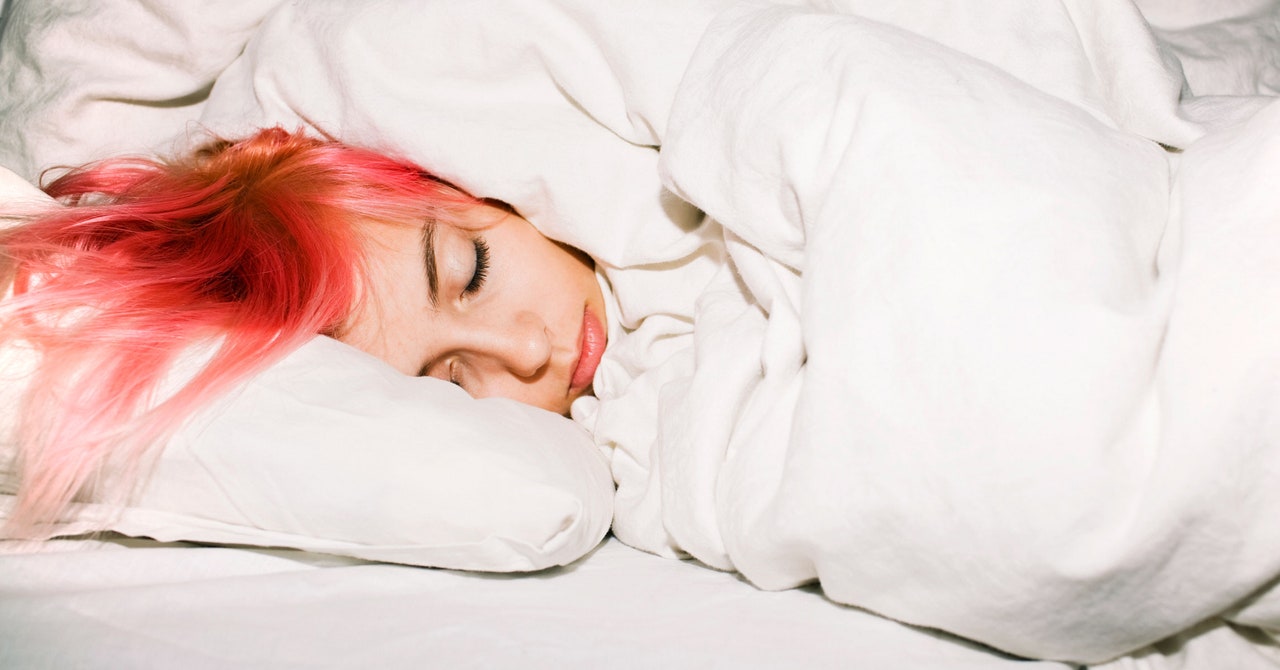Life in the Covid-19 pandemic has taken on some unpleasant and unexpected contours. Time has lost all meaning. Dreams have become assailingly vivid. That is, if you’re able to sleep at all, which many people cannot. At least, not as well as they did before it felt like everything was unraveling, all of the time, with no end in sight.
“I am seeing a significant spike in insomnia at this time during the pandemic,” says Lisa Medalie, a behavioral sleep medicine specialist at the University of Chicago.
It might be useful to nail down our terms here. Insomnia isn’t just staying up late. It’s the inability to sleep—or to fall back asleep if you wake in the middle of the night—with no obvious impediments to explain it. Implicit in the definition, too, is that the deprivation negatively impacts your ability to function the next day. It’s acute when it lasts a few days or weeks; if it extends longer than a month, it’s considered chronic.
If this sounds like you, know first that you’re going through the same thing as a lot of people. And also know there are a few simple strategies you can deploy to get yourself back on track.
Who Needs Sleep?
It is extremely understandable if you have cut yourself some slack during these sheltered-in-place times. Maybe your diet has gone a little snack-heavy. Maybe you shifted your work hours to make way for childcare or self-care. Maybe you stopped flossing. Only natural. But sleep is something worth preserving—even though that’s harder than it may sound.
“During times of increased stress, sleep is often the first biological system to malfunction,” says Candice Alfano, director of the University of Houston’s Sleep and Anxiety Center. A pandemic is stressful like magma is hot. In a recent online survey conducted by Alfano and her research team, the rate of respondents reporting “severe to very severe problems” either falling or staying asleep was double what they normally see.
That tossing and turning has real health implications. As neuroscientist and sleep expert Matthew Walker detailed in a 2019 TED Talk, sleep deprivation makes your brain slower, weakens your immune system, and increases the likelihood of all kinds of mental and physical woes as you age. “Sleep loss will leak down into every nook and cranny of your physiology,” Walker said in his viral presentation. “Sleep, unfortunately, is not an optional lifestyle luxury. Sleep is a nonnegotiable biological necessity. It is your life support system.”
Unfortunately, life amid Covid-19 disrupts that sleep in any number of ways. There’s the anxiety, sure, not just about the disease itself but about financial security, childcare, and all the other ancillary effects of a society in suspended animation. “If you’re not tackling those problems head-on during the day, then when it’s just you and your brain at night and there’s no distractions, all of those problems, all those worries, all those stressers are going to come bubbling to the surface,” says Medalie. “The thoughts are going to produce emotional responses, the emotional responses are going to produce more thoughts, and the realization that time has passed and you’re not sleeping produces anxiety.”
It gets worse. “The relationship actually runs in both directi

